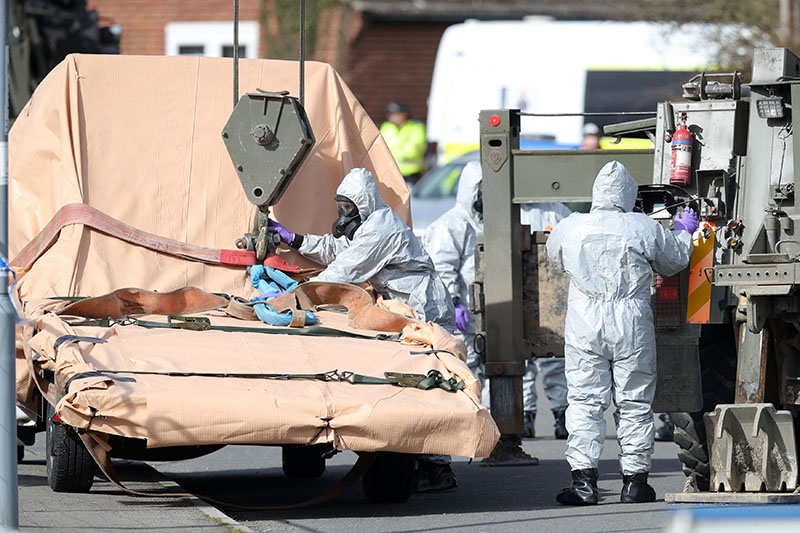New Zealand bans entry to any Russian expelled by allies
- New Zealand to impose travel ban on expelled Russian diplomats
- More than 100 officials expelled by allies to protest attack
- NZ criticised for not taking strong stance: security analysts
WELLINGTON: New Zealand will not allow entry to Russian diplomats expelled by other countries in response to a nerve agent attack on a former Russian spy in Britain, that Britain has blamed on Russia, Prime Minister Jacinda Ardern said on Thursday.
The attempted murder of Sergie Skripal, a former colonel in Russian military intelligence who betrayed dozens of Russian agents to Britain's MI6 spy service, has plunged Moscow's relations with the West to a new post-Cold War low.
After Britain expelled 23 Russians it said were spies working under diplomatic cover, Russia followed by throwing out 23 British diplomats. The United States and other Western countries, including most member states of the European Union and NATO, expelled more than 100 diplomats.
New Zealand has not expelled any Russians, which Ardern earlier justified by saying there were no Russian spies present at the Russian embassy in New Zealand for her government to expel, unlike the situation in other intelligence partners.
She said on Thursday she would ask allies for the names of the Russians they expelled and they would not be allowed into New Zealand to protest against Russia's "inadequate response" to the attack in Britain.
"Those names will then be placed on a travel ban list to ensure that individuals who have been found to undertake activities incompatible with their diplomatic status in other countries do not enter New Zealand," she said in a statement.
Some politicians had earlier criticised Ardern for not taking a harder stance against Russia, and risking a rift with the Pacific nation's Western allies.
"The perception is that the original response wasn't strong enough and therefore they're trying to make up for it," Robert Ayson, professor of security studies at the Victoria University in Wellington, said of the travel ban.
"It does look like a bit of scramble."
Rhys Ball, a Massey University security analyst who formerly worked for New Zealand's intelligence service, said the government's block on the expelled Russians was largely a gesture.
"It's a very lightweight effort ... those undeclared intelligence officers are essentially what we would describe as 'blown' now and they're not going to travel to any other country any time soon," Ball said.
Some analysts see the government's decision not to expel any Russians as one the first major international missteps for the charismatic Ardern, whose centre-left Labour government took the helm in October.
Deputy Prime Minister and Foreign Minister Winston Peters told Parliament on Wednesday that most of Russia's spying activity on New Zealand took place from offshore.






